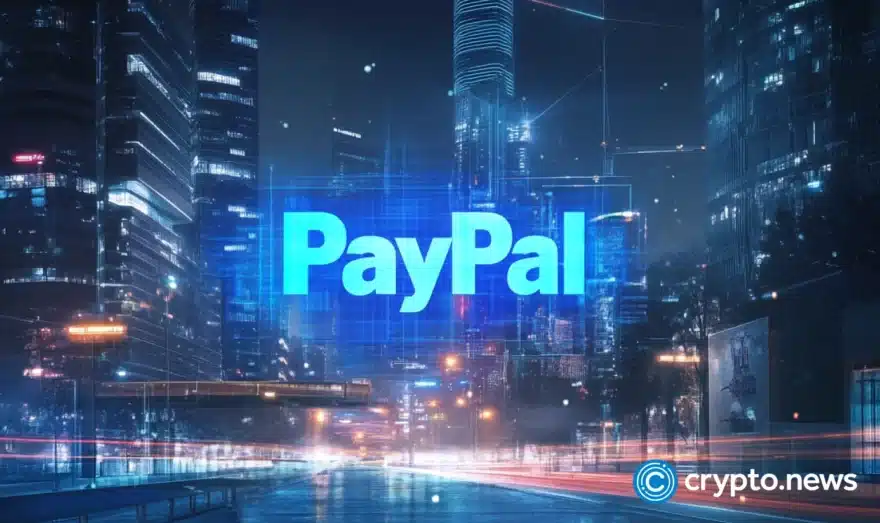Neobanks are bridging financial gaps with blockchain | Opinion

Disclosure: The views and opinions expressed here belong solely to the author and do not represent the views and opinions of crypto.news’ editorial.
Traditional finance has been failing for a long time, but its cracks have always been ignored. Under the current economic challenges, these cracks are finally showing up, and the shortcomings of the traditional financial system can no longer be overlooked. Nearly 1.4 billion people today remain unbanked. Around one-fourth of the global population is left behind by an industry that thrives on exclusion and inefficiency.
With their outdated models, traditional financial institutions continue to exclude those who lack access to documentation, credit histories, or stable infrastructure. This model works against a certain class of population, and there have been no notable changes over the years to increase inclusion. However, blockchain and the new generation of neobanks might have the answer to financial inclusivity in this new age of digital finance.
High fees and delayed transactions
Even beyond inclusivity, traditional financial systems have outdated processes that are proving unmanageable in today’s fast-paced digital era. Consider international money transfers—banks still require days to finalize cross-border transactions, and they add hefty fees to them as well. Remittance charges can soar up to an average of 6.35%, which is significant when you consider the value of currencies in developing nations.
Neobanks built on blockchain infrastructure are changing this. Such platforms eliminate the need for middlemen, so transfers are faster, seamless, low-cost, and almost real-time. The use of decentralized networks removes the friction imposed by traditional banks, creating a financial system that serves everyone—not just the privileged few.
Financial inclusion is more than access
The issue of financial inclusion is not new—it’s been a buzzword in the industry for years. Banks have been constantly scrutinized for overcomplicating onboarding processes and making key financial services inaccessible to socially struggling individuals. The majority of the unbanked population in the world lives in developing regions where financial institutions either don’t operate or have imposed insurmountable barriers to entry. The focus on documentation and credit history has shut out large populations, creating an unequal and unjust global financial system.
Neobanks are challenging this by moving beyond paper-based identification and adopting decentralized models. Technologies like behavior-based identification models through the blockchain—which we are also leveraging at WeFi—can make banking accessible to those who would otherwise be locked out. These next-gen systems can help provide financial identities to users who have been left behind by traditional banks and give them access to equal financial opportunities.
The illusion of ownership in traditional finance
When you deposit your funds to a bank, the general expectation is that it’s safe. You expect your funds to just sit in your account—untouched and free from financial issues. This is an illusion created by traditional financial institutes. Banks have complete access to your funds, and they will use them for lending, investment, and other purposes. Most banks operate under fractional reserve banking models, a highly vulnerable system. In case of too many withdrawal requests in a short period, these banks are prone to collapse. We’ve seen several cases like this during the Covid-19 pandemic. So, the perception that you have full control over the funds in your bank account is a mere illusion.
Neobanks are a great solution to this issue, especially platforms that offer non-custodial accounts. Users can retain full ownership and control over their assets, and the bank or any third party will not have any rehypothecation over them. This kind of autonomy is critical for financial resilience, especially in times of economic uncertainty.
The data exploitation problem
Another major shortcoming of traditional finance is its approach to data. Centralized systems accumulate vast amounts of personal information from customers, creating honeypots for cybercriminals. The finance industry is a prime target for data breaches, with the sector accounting for 27% of all data breaches in 2023 alone. These centralized systems make individuals vulnerable to identity theft, fraud, and other forms of cybercrime, with little accountability on the part of financial institutions.
Blockchain-based neobanks remove this vulnerability by decentralizing data. In this model, individuals retain control over their personal information, and data breaches become less likely due to the transparent and secure nature of the blockchain.
What about volatility?
Whenever a user hears about neobanks or blockchains, the first thought that pops up is ‘crypto is volatile’—its wild price fluctuations are a major worry for the mass population.
Stablecoins provide a solution, offering the stability of traditional currencies while maintaining the speed, transparency, and security of blockchain technology. They create a way for users to avoid the risks associated with volatile assets, ensuring that their financial transactions remain stable and predictable.
The future of finance will inevitably revolve around stablecoins, as they offer a clear path to financial inclusion without exposing users to the high-risk nature of the broader cryptocurrency market. These digital assets make financial services accessible, transparent, and reliable for anyone, anywhere.
TradFi is failing the world, and decentralization is the solution
The cracks in traditional finance are deepening. For too long, banks have held control over money and dictated who can participate in the financial system. It resulted in billions of people being left behind, either because they lack documentation, live in remote areas, or simply cannot afford the fees. This system is broken beyond repair, and it’s time for something new.
Blockchain-fueled neobanks are the optimal solution to dismantling the barriers that have excluded many from basic financial opportunities. By offering a decentralized, inclusive, and transparent alternative, these platforms represent the future of finance, one where everyone, regardless of location or financial background, can participate.














